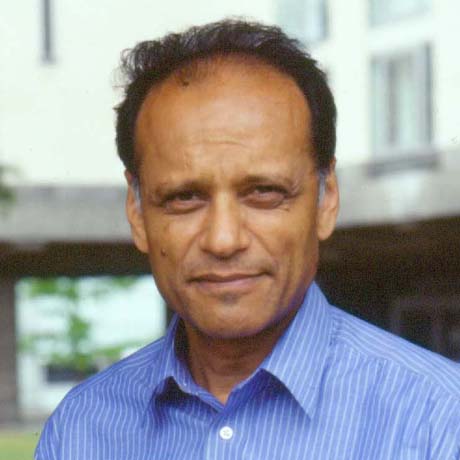Professor Sir Partha Dasgupta
Partha Dasgupta, Ph.D., FRS, FBA is the Frank Ramsey Professor Emeritus of Economics at the University of Cambridge, United Kingdom; Fellow of St John’s College, Cambridge, and Visiting Professor at the New College of the Humanities, London. His father-in-law was the Nobel Laureate James Meade. He is a cofounder of the Centre for the Study of Existential Risk at the University of Cambridge.
His research interests have included welfare and development economics; the economics of technological change; population, environmental, and resource economics; social capital; the theory of games; the economics of global warming, and the economics of malnutrition.
Partha has been honored by elections as Fellow of the Econometric Society, 1975; Fellow of the British Academy, 1989; Fellow of the Royal Society, 2004; Fellow of the Society for the Advancement of Economic Theory, 2013; Member of the Pontifical Academy of Social Sciences, 1997; Fellow of The World Academy of Sciences (formally the Academy of Science for the Developing World), 2001; Member of Academia Europaea, 2009; Foreign Member of the Royal Swedish Academy of Sciences, 1991; Foreign Honorary Member of the American Academy of Arts and Sciences, 1991; Foreign Associate of the US National Academy of Sciences, 2001; Foreign Member of the American Philosophical Society, 2005; Foreign Member of Istituto Veneto di Scienze, Lettere ed Arti, 2009; Honorary Fellow of the London School of Economics, 1995; Honorary Fellow of Trinity College, Cambridge, 2010; Honorary Member of the American Economic Association, 1997; Distinguished Fellow, CES, University of Munich, 2011; and President of the Royal Economic Society, 1998–2001, the European Economic Association, 1999; Section F (Economics) of the BA (British Association for the Advancement of Science) Festival of Science, 2006, and the European Association of Environmental and Resource Economists, 2010–2011.
He was named Knight Bachelor by Her Majesty Queen Elizabeth II in 2002 for services to economics; was co-recipient (with Karl Goran Maler) of the 2002 Volvo Environment Prize; co-recipient (with Geoffrey Heal) of the Association of Environmental and Resource Economists, recipient of the PEN/John Kenneth Galbraith Award of the American Agricultural Economics Association, 2007; recipient of the Zayed International Environment Prize (II: scientific and technological achievements) in 2010; and recipient of the European Lifetime Achievement Award (in Environmental and Resource Economics) from the European Association of Environmental and Resource Economists, 2014. In 2007, together with Eric Maskin he was awarded the Erik Kempe Award in Environmental and Resource Economics, a joint prize of the Kempe Foundation and the European Association of Environmental and Resource Economists (EAERE). He was awarded the 2015 Blue Planet Prize for Environmental Research and the 2016 Tyler Prize.
Partha was awarded a Doctorate (Honoris Causa) by Wageningen University, 2000; Catholic University of Louvain, 2007; Faculte Université Saint-Louis, 2009; University of Bologna, 2010; Tilburg University, 2012; and Harvard University, 2013.
His books include Economics: A Very Short Introduction, Human Well-Being and the Natural Environment, An Inquiry into Well-Being and Destitution, The Control of Resources, Social Capital: A Multifaceted Perspective, Creation and Transfer of Knowledge: Institutions and Incentives, The Economics of Non-Convex Ecosystems, and Economic Policy and Technological Performance.
Partha was educated in Rajghat Besant School in Varanasi, India, obtaining his Matriculation Degree in 1958, and pursued undergraduate studies in Physics at the Hans Raj College, India, graduating in 1962 and in Mathematics at Trinity College Cambridge, graduating in 1965. He obtained a Ph.D. in Economics at Cambridge in 1968 with thesis titled “Population, growth and non-transferable capital (investigations in the theory of optimum economic growth)”.
Read his Wikipedia profile.
